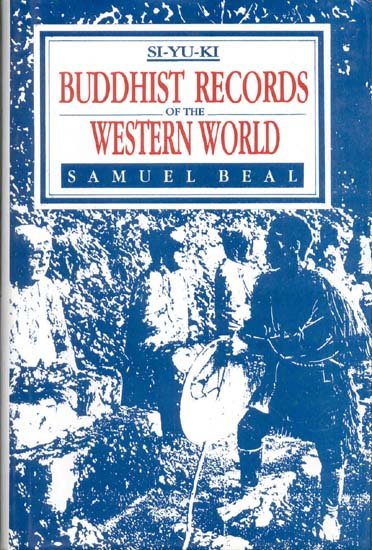The travels of Fa-Hian (400 A.D.)
by Samuel Beal | 1884 | 20,385 words | ISBN-10: 8120811070
This is the English translation of the travel records of Fa-Hian (or, Faxian): a Chinese Buddhist monk who traveled by foot from China to India between A.D. 399 and A.D. 412. The full title is: The travels of Fa-Hian: Buddhist-country-records; By Fa-hian, the Sakya of the Sung (Dynasty) [Date, 400 A.D]. This work is an extract of the book “Buddhi...
Chapter V
The king of this country keeps the The Pan-che-yue-sse (Panchavarsha, parishad) in Chinese words is “the great five-yearly assembly.” At the time of the assembly he asks Sramanas from the four quarters, who come together like clouds. Being assembled, he decorates the priests’ session place; he suspends silken flags and spreads out canopies; he makes gold and silver lotus flowers; he spreads silk behind the throne, and arranges the paraphernalia of the priests’ seats. The king and the ministers offer their religious presents for one, two, or three months, generally during spring-time. The king-made assembly being over, he further exhorts his ministers to arrange their offerings; they then offer for one day, two days, three days, or five days. The offerings being finished, the king, taking from the chief officer of the embassy and from the great ministers of the country the horse he rides, with its saddle and bridle, mounts it, and then (taking) white taffeta, jewels of various kinds, and. things required by the Sramanas, in union with his ministers he vows to give them all to the priests; having thus given them, they are redeemed at a price from the priests.
The country is hilly and cold; it produces no variety of grain; only wheat will ripen. After the priests have received their yearly dues the mornings beconie frosty; the king, therefore, every year induces the priests to make the wheat ripen, and after that to receive their yearly portion. There is a stone spitting-vessel in this country belonging to Buddha, of the same colour as his alms-dish. There is also a tooth of Buddha; the people of the country have built a stupa on account of this tooth. There are a thousand priests and more, all belonging to the Little Vehicle. From the mountains eastward the common people wear garments made of coarse stuff, as in the Ts’in country, but with respect to felt and serge they are different. The religious practices of the Sramanas are so various and have increased so, that they cannot be recorded. This country is in the middle of the Ts’ung-ling range; from the Ts’ung-ling onwards the plants, trees, and fruits are all different (from those before met with), except the bamboo, the an-shih-lau (pomegranate?), and the sugar-cane.
